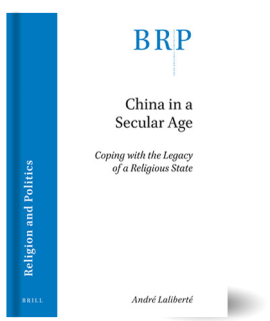|
If the newsletter does not display properly, please click here. |

|
|||||
|
|||||
|
Dear friends and colleagues, We also have a new publication for you and would like to draw your attention to several job opportunities and a Call for Papers. Enjoy and have a good week! Anja & Lucy |
|||||

|
|||||
Next week’s colloquium: Dietrich Jung and Kirstine Sinclair on “’The Arctic Muslim’: Islamic Traditions and Modern Subjectivity in the Western North”, 19 JanuaryNext Wednesday our Senior Research Fellow Dietrich Jung together with his colleague Kirstine Sinclair from the Centre for Contemporary Middle East Studies at the University of Southern Denmark, will present his new project on “The Arctic Muslim”. The project will start in summer 2022, and therefore all comments, ideas, and suggestions in the colloquium are more than welcome. You can find the project description in our Member Area. As the colloquium takes place online, you will also find information on the zoom connection data in the Member Area. 19 January | 9.15–11.45 a.m. (CET) Online via zoom |
|||||
|
|||||
|
|||||

|
|||||
Job Opportunities: Doctoral Positions at the Institute for Empirical Research on Religion at University of BernOur colleague Sebastian Schüler, professor at the Institute for the Study of Religions at Leipzig University points to the announcement of three doctoral positions at the Institute for Empirical Research on Religion at the University of Bern: The positions fall within the framework of a research project entitled “Wie verändert sich Religiosität? – Religiöse Dynamiken im Spiegel eines multidimensionalen Modells der Religiosität” (“How does religiosity change? – Religious dynamics in the mirror of a multidimensional model of religiosity”). In this project, the turning points and paths of religious biographies in Switzerland are studied. The main areas of work will include project work and doctoral studies in the field of qualitative and quantitative research on religion. Job opportunities qualitative research on religion (in German) Job opportunity quantitative research on religion (in German) |
|||||

|
|||||
Call for Papers: Cultures of Belief and Unbelief: 14th Annual Conference of the International Society for Cultural HistoryWe would like to draw your attention to a Call for Papers by the International Society for Cultural History inviting papers and panel proposals for its 2022 annual conference on Cultures of Belief and Unbelief. The current political arena and the response to the pandemic are the battleground of spectacular cultural wars, involving the systematic production and circulation of fake news and the – often preposterous – questioning of facts. These developments, which come last in a long series, invite historians to critically revisit the way belief has been constructed, controlled and questioned in the past in a wide spectrum of fields, from information to the understanding of nature, and beyond. Possible topics for panels and individual papers include, among others, knowledge, information and belief; belief and unbelief conjoined; beliefs and practice in ritual behavior; emotions, the senses and faith as well as the material and visual culture of faith. The conference will be held in Verona/Italy and (presumably) online in August. Deadline for submission of abstracts: 31 January Notification of acceptance: 28 February Conference dates: 2–5 August | Hybrid event (Verona/Italy AND online)
|
|||||
|
If you have any content that you think suits the purpose of the weekly, please feel free to send it to us at multiple-secularities@uni-leipzig.de. |
|||||
|
Kolleg-Forschungsgruppe "Multiple Secularities - Beyond the West, Beyond Modernities" Nikolaistraße 8-10, 04109 Leipzig Mail: multiple-secularities@uni-leipzig.de |
